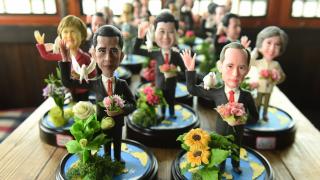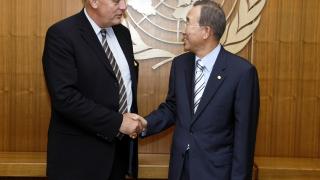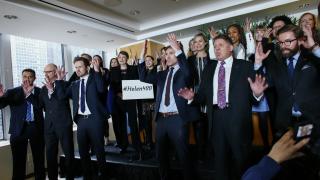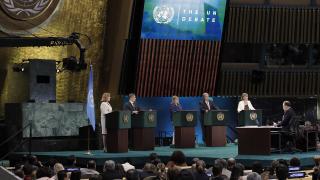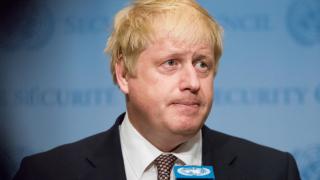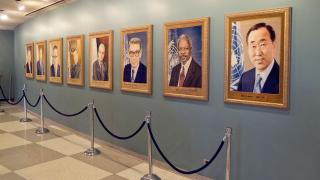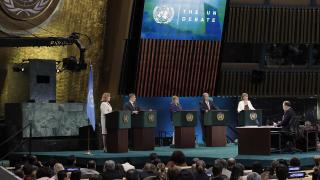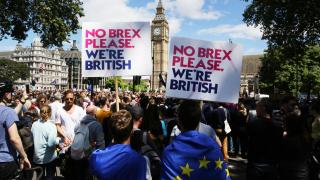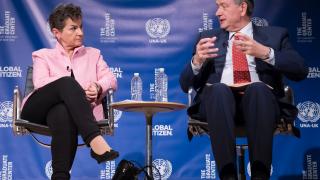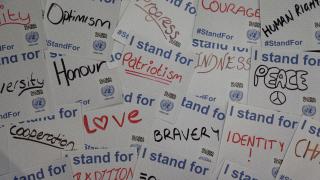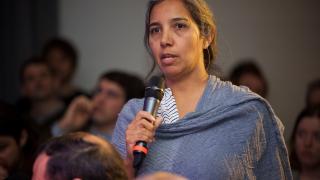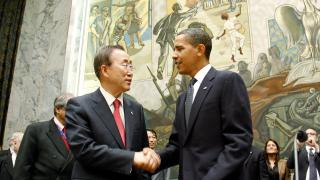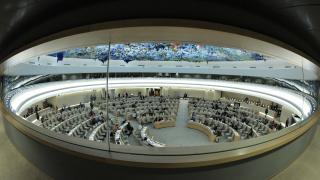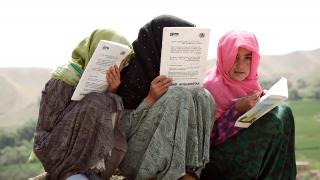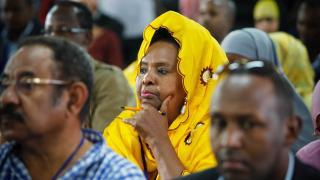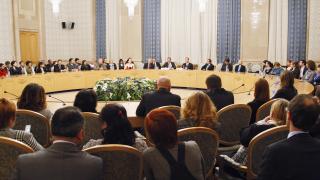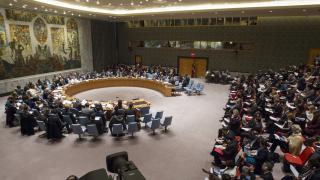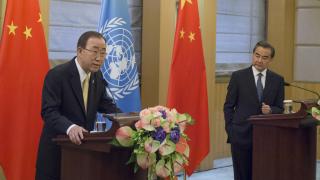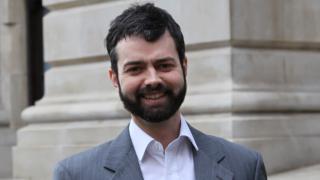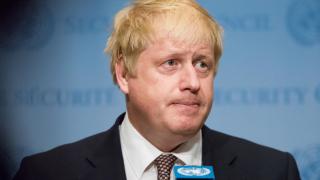
The day after June's Brexit vote, America's right wing Fox News channel briefly announced that Britain was leaving the United Nations, rather than the European Union. Though this was a mishap, it captured the fears of many internationally-minded Britons this summer: our decision to leave the EU is just the start of a wider rejection of the country’s longstanding commitment to boosting global cooperation.
Since June, Whitehall has been pedalling the opposite message: While the UK may quit the EU, Britain remains a pillar of the global system, and its leading role at the UN is proof of just that. Prime Minister Theresa May has reassured UN Secretary‑General Ban Ki‑moon that the UK will stick to its aid pledges. Foreign Secretary Boris Johnson hastened to New York shortly after his appointment to cast a symbolic vote on Libya in the Security Council, and generally butter up UN officials.
These gestures have gone some way to scotch gossip around the UN that UK’s permanent seat on the Security Council could be in question after Brexit. But British diplomats in New York cannot relax. There will be more questions about Britain’s influence in the UN system as the Brexit process unfolds, especially as its leverage over the financially influential EU bloc inevitably wanes. Germany already pays a greater percentage of the UN budget than the UK. Britain’s veto power in the Security Council remains an obvious diplomatic asset, but it has not proved to be a particularly useful tool in, say, UN negotiations over the Syrian crisis, which Russia and the US have largely controlled.
If the UK wants to maintain real influence at the UN in the Brexit era, it needs to emphasise three priorities. The first is forging the closest possible strategic relationship with the new Secretary‑General. The second is structuring a lasting diplomatic settlement with the EU at UN headquarters that gives it enduring influence over the bloc’s multilateral policies. The third is fighting to dispel widespread suspicions that the current government will eventually renege on its aid obligations – an important element of British soft power.
The selection of a new Secretary‑General is a particularly advantageous opening for the UK to bolster its status in New York. The next UN chief will be the standard bearer for a number of causes the UK has championed in the past – such as climate change and advancing the Sustainable Development Goals – and London should aim to align their positions. There are good precedents for this: Britain enjoyed especially good ties with Kofi Annan, despite tensions over the Iraq war, and worked with him on issues including peacekeeping reform and international development.
The UK’s relations with Ban Ki‑moon have always been cordial, but have never reached Annan‑era levels of intimacy. Ban has often seemed exclusively interested in US views. David Cameron reportedly once nixed the idea of proposing a top Whitehall official for a senior UN post on the basis that he was “too good for the UN”.
The British mission in New York has tried to lay the groundwork for more fruitful relations with Ban’s successor, advocating a transparent selection process – while also savagely briefing against candidates it dislikes, proving that the Foreign and Commonwealth Office still has some gumption left. Prime Minister May should offer the eventual winner strategic support on essential initiatives such as overhauling UN peace operations after the crisis in South Sudan, with a view to maximising Britain’s voice in UN policy processes.
May should also ensure that British diplomats in New York work with their European counterparts to establish new mechanisms for policy coordination during the Brexit process. In addition to regular meetings with the EU as a whole, top UK diplomats should establish a regular ‘EU2+1’ format for meeting their partners from the French and German missions to address those challenges – such as the mandates and costs of new blue‑helmet operations – that could prove most divisive. Berlin, Paris and London did a good job of projecting overall strategic unity during the Iran talks, despite tactical differences, and should maintain this on broader UN affairs.
Coordinating with other Europeans should not entirely distract UK officials from opportunities to strike alliances with non‑Western powers. Norway and Switzerland have used their non‑EU status to build bridges with African and Asian states around the UN. The UK may be able to do the same on a grander scale after Brexit. But it will not be taken seriously if it appears cut off from its European allies.
The UK will also struggle to maintain its status at the UN if it seems to lose interest in aid. While Prime Minister May has said she remains committed to spending 0.7 per cent of Gross National Income on development aid, new development secretary Priti Patel has suggested that this money could be used to advance national interests and stimulate post‑Brexit trade agreements rather than help poor and fragile states. Whether or not this makes much sense economically, it would almost certainly undercut Britain’s credibility in UN debates over how to eradicate absolute poverty or stabilise conflict‑ridden poor countries.
London should emphasise that, while it is naturally interested in expanding its trade, it will maintain a focus on assisting the most vulnerable at the UN. If it does not do so, it may find that its standing as a leader in global diplomacy will fade away.
Photo: British Foreign Secretary Boris Johnson speaks to the press after a Security Council stakeout where he spoke about the UK’s post-Brexit priorities. © Albin Lohr-Jones/Pacific Press/Alamy Live News


